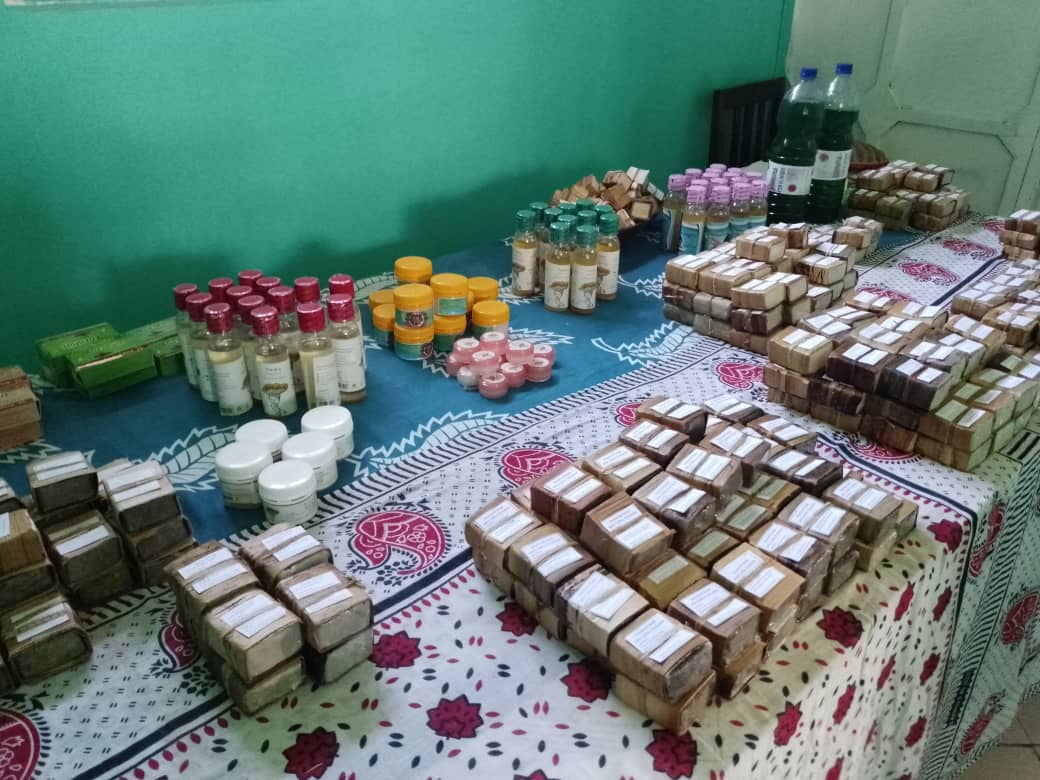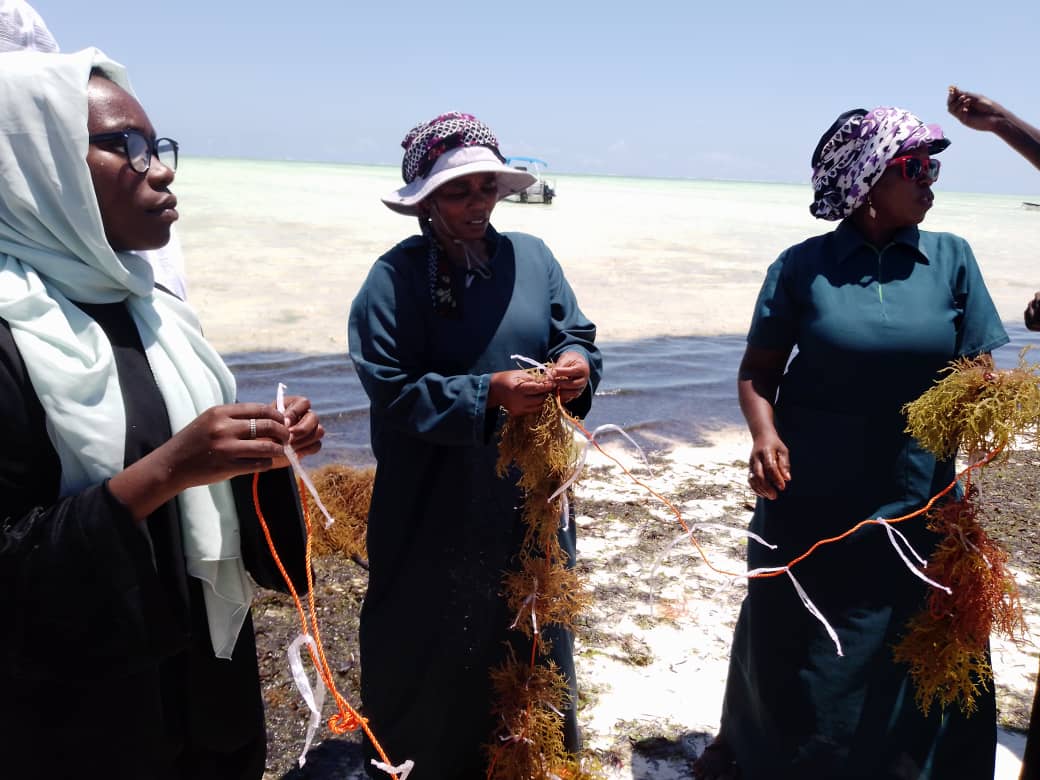|
Getting your Trinity Audio player ready…
|
In Panje, Zanzibar, on the coastline of the resort city, the Furahia Wanawake (Seaweed Farming Women Association) is an organisation of women who are eking a living from seaweed – a low-hanging fruit in the blue economy discourse.
According to the Seaweed Farming Women Association Secretary, one Mwanaisha, the project officially came into full force in 2009.
“Soon after formation in 2009, the following year in 2010, we joined the Zanzibar Seaweed Cluster Initiative – a move that has brought many benefits to our association. We are getting knowledge on how to improve the processing of seaweed through value addition. We process the seaweed into soap and detergents.

“In our association, there are 34 women cultivating seaweed and processing it into finished products like soap. The soap and detergents are used for laundry and bathing. We have a seaweed soap with lemongrass. The ingredients are coconut oil, caustic soda, sea moos powder, and spices. This sea moos soap is hand-made by the sea moss ladies of Panje. It is made from natural ingredients,” Mwanaisha said.
The local community is benefitting from the project because they provide the seaweed. The women face some challenges.
According to the Institute for Poverty, Land and Agrarian Studies (PLAAS), the seaweed women farmers’ access is restricted by extensive hotels development on the ocean shoreline and selling adventure tour packages on un-spoilt and pristine beaches of Zanzibar for international tourists to enjoy. A direct consequence is the women are not allowed to dry seaweed on the beach, the wooden pegs of the seaweed farms are in the way of the surfers to play. This is a blue justice issue for the women of Paje and PLAAS argues that stakeholders all have the responsibility to secure women’s access and tenure to practice their livelihoods in the ocean and on land.
Journalists from African countries are in Zanzibar to learn how to communicate efficiently the issues about the blue economy and had the opportunity to visit seaweed women farmers in Paje as part of the African Union Inter-African Bureau for Animal Resources (AU-IBAR) in partnership with the African Union Development Agency – New Partnership for Africa’s Development (AUDA – NEPAD) programme that is implementing a second phase of the fisheries governance project, colloquially named FISHGOV 2, and funded by the European Union (EU).
FISHGOV 2 follows the successful implementation of FISHGOV 1, a project similarly funded by the EU, and which ran from 2014 to 2018. FISHGOV 1 was titled, “Strengthening Institutional Capacity to Enhance Governance of the Fisheries Sector in Africa”. It sought to strengthen institutional capacities for increasing fisheries and aquaculture sector contribution to food security and socio-economic development in Africa.
FISHGOV 2 also builds on the companion project to FISHGOV 1, known as FISHTRADE. The key beneficiaries of FISHGOV 2 will be fisher-folk, aquaculture producers, and small-scale and informal fish processors and traders.
Amongst these, about 50% are women who depend exclusively on post-harvest activities for income and economic empowerment. Other beneficiaries will be the 400 million rural and urban African households whose food and nutritional security depends on low-value fish. FISHGOV 2 also seeks to strengthen fisheries management capacity within the African Union itself, and at national and regional levels. In particular, it aims to significantly enhance the African voice in international fora.
Regional institutions, i.e. regional economic communities (RECs) and regional fisheries bodies (RFBs) will also gain significantly as the project will strengthen their institutional mandates and capabilities. The ultimate benefits of the project as anticipated include increased revenue, fish supplies, food security, and social welfare.
